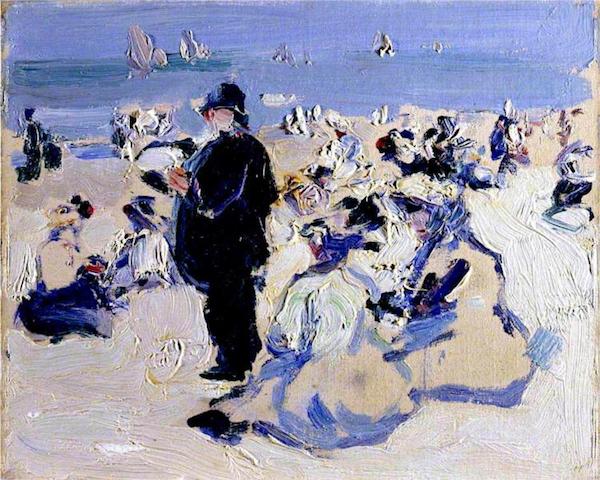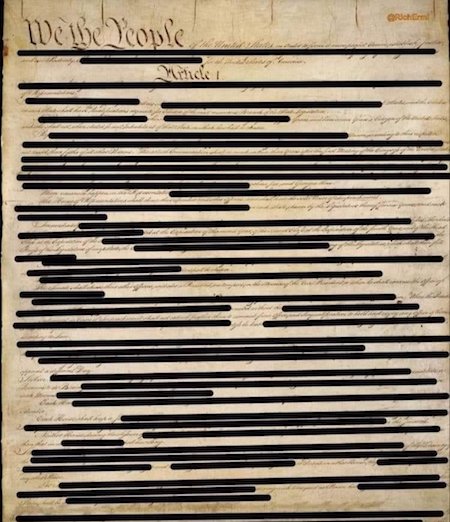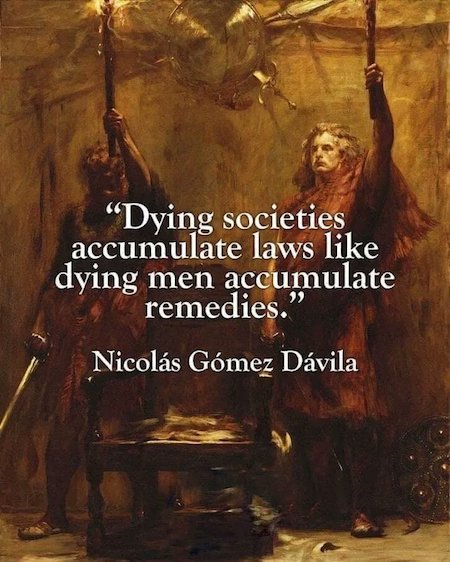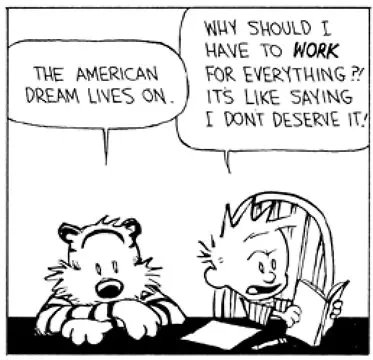
Pablo Picasso Portrait of Maya 1939

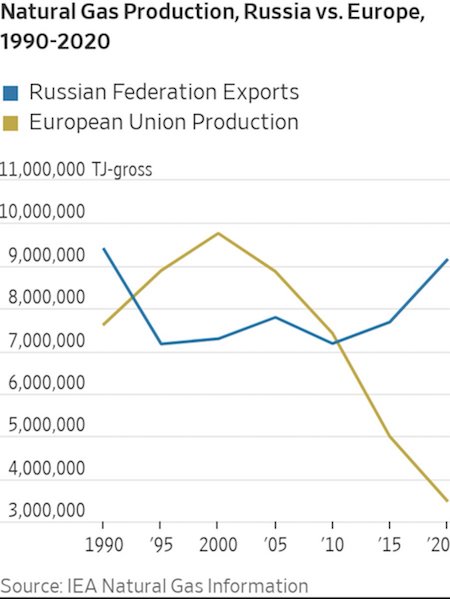

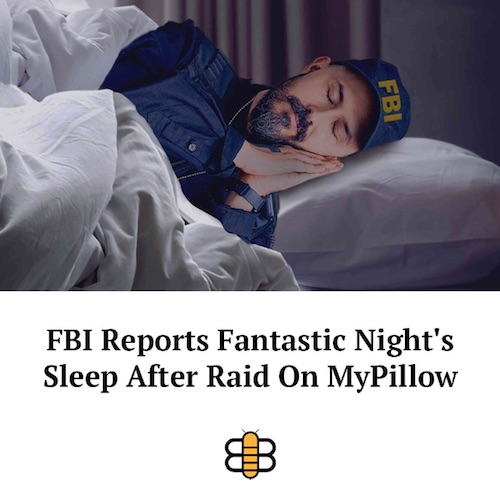

Dies suddenly
This is not normal pic.twitter.com/CCE6U2XXpg
— Jamie Sale (@JamieSale) September 16, 2022





He’s preparing you for loss
I have a message for those who choose to sow fear and darkness. pic.twitter.com/lrzSbBdxz2
— President Biden (@POTUS) September 16, 2022


“Game, set… Mr. Trump. Match to-be-determined.”
What “JB” fears, Mr. Philip says, is that his nemesis, Mr. Trump, following a decisive Red win in the 2022 midyears, will manage to get a few key states to de-certify their 2020 electoral college votes — based on proven ballot fraud — thus triggering a “contingency election” in the US House of Representatives, with one vote for each state, which Mr. Trump would likely win. Far out as it sounds, the machinery for all this is embedded deep in the constitution and federal statutory law. The so-called Deep State — yes, that one… the administrative Moloch that ate Washington — fears for its existence in such a seemingly far-out case. As it should. Because Mr. Trump would replace the sniveling tool Merrick Garland with an Attorney General interested in restoring the rule of law, which will necessarily require the imposition of said law on a large cast of sinister characters in the federal bureaucracy, plus not a few elected officials, who have engaged in systematic seditious treachery lo these many years.
Among these are the upper ranks of the FBI, whose multi-year illegal antics have climaxed in the August raid on Mar-a-Lago, and the September blitz of late-night, SWAT-team subpoena servings and phone-grabbings on Mr. Trump’s associates and lawyers. Seems the FBI might have been rope-a-doped on the Mar-a-Lago caper. What the FBI confiscated were reams of evidence of the agency’s own misconduct dating back through the RussiaGate op. Then they attempted to hide the list of all that material by redacting the affidavit that accompanied the search warrant. Their aim: to designate all that evidence inadmissible in future proceedings against them due to it being tagged to an “ongoing investigation” that will never end. This has been FBI Chief Chris Wray’s ploy every time he’s been faced serious questioning in Congress. I can’t speak about ongoing investigations….
Late Thursday, however, federal Judge Aileen Cannon blocked the FBI’s use of the seized material in any criminal probe against Mr. Trump, and, at his request, appointed a “Special Master” to sort out the true ownership and privilege status of the docs. The Special Master is one retired federal judge Raymond J. Dearie. Mr. Dearie has until November 30 to complete his review of the material. By then, of course, the midterm election will be over; the FBI and its parent agency, the DOJ, will be making plans to do some ‘splainin’ to the new Congress come January. Game, set… Mr. Trump. Match to-be-determined.

“..the political chaos in the EU and the US this fall and winter means that now is the time to try has hard as possible to conceal the magnitude of the disaster for the Ukronazi+NATO.”
• Who Will Run Out Of Resources First? (Saker)
By most credible accounts, the recent Ukronazi+NATO attack in the Kharkov area was even more costly in KIA/MIA, wounded and lost hardware than the attack towards Kherson. The combined losses from these attacks are staggering. Yet there are all the signs that the Ukronazi+NATO forces are preparing for even more such attacks. The Ukronazi+NATO seem happy to trade human lives for territorial gains, no matter how small or how irrelevant that territory is. The Russians seem happy to trade space and time to protect the lives of their soldiers and equipment. We could say that the Ukronazi+NATO are trading bodies for shells. Let’s remember the two goals set by Putin for the SMO: denazify and demilitarize. Both of these goals are human-focused, not terrain-focused.
In other words, if a tactical-level withdrawal allows the Russian to kill scores of Ukronazi+NATO personnel and destroy their equipment, they will gladly accept the trade. The other goal was to protect the LDNR. Kherson is not part of the LDNR. Territory can be reconquered, equipment is hard to replace, especially complex weapon-systems. And soldiers cannot be resurrected. It is absolutely clear that Ukronazi+NATO are “betting the farm” into these offensives. Not only is the coming winter a major threat for them, but the political chaos in the EU and the US this fall and winter means that now is the time to try has hard as possible to conceal the magnitude of the disaster for the Ukronazi+NATO.
So, most of what is taking place now can be summed up in this simple question: who will run out of resources first: the Ukronazi+NATO in terms of manpower and equipment or the Russians in terms of firepower (mostly artillery, missiles and airpower)? I think that the answer is obvious.

Ze is keeping hungry people hostage. aBut we’ll keep blaming Putin, right?
Peter Dynes @PGDynes: “A huge percentage of the global food supply relies heavily on just one pipeline carrying ammonia gas from Russia to Odessa. This Artificial fertilizer indirectly feeds billions of people. The pipeline is currently shut.”
• Zelensky Names Terms For Transport Of Russian Ammonia (RT)
Ukrainian President Vladimir Zelensky will allow Russia to resume sending ammonia exports through his country, thus easing a global fertilizer shortage, only if Moscow releases Ukrainian prisoners of war, he told Reuters on Friday. “I am against supplying ammonia from the Russian Federation through our territory. I would only do it in exchange for our prisoners,” Zelensky told the outlet. “This is what I offered the UN.” The Kremlin quickly dismissed the offer. “Are people and ammonia the same thing?” spokesman Dmitry Peskov responded, as reported by the news agency TASS. While Zelensky has claimed Ukraine took hundreds of Russian troops as prisoners during its recent counter-offensive in Kharkov, he has acknowledged Russia holds more Ukrainian POWs.
The UN had suggested Russian fertilizer producer Uralchem pump ammonia gas by pipeline to the Ukrainian border, where it could be purchased by Trammo, a US-based commodities trader. The pipeline can pump as many as 2.5 million tons of ammonia per year from the Volga region to the port of Yuzhny on the Black Sea. However, the port has been closed since the start of Russia’s military offensive in February. Ammonia is a vital ingredient in nitrate fertilizer, and a shortage in supply threatens to compound the global food crisis, itself already exacerbated by the conflict as much of the world’s wheat comes from Ukraine and Russia. As many as 70% of European ammonia plants have reduced or halted production in recent months due to record-high energy prices, according to the Russian fertilizer industry.
Russia, Ukraine and Turkey signed a UN-brokered deal in July to resume grain exports from Ukraine’s Black Sea ports to alleviate the shortage. However, Russia’s representative to the UN, Vassily Nebenzia, recently blamed Western sanctions for holding up shipments of both grain and fertilizer. He accused EU officials of hypocrisy for blocking Russian shipments to Africa, Asia and Latin America while allowing the critical resources to reach the bloc’s own shores. Of the 136 ships that have left Ukrainian ports carrying grain, just six went to the poorest countries suffering food crises.

But sanctions….
• Russia Ready To Give Fertilizers To Poor Nations For Free – Putin (RT)
Russia is prepared to provide 300,000 tons of fertilizers currently amassed at EU ports due to Western sanctions to developing nations free of charge, President Vladimir Putin said on Friday. Speaking at a summit meeting of the Shanghai Cooperation Organization (SCO) in Uzbekistan, the Russian leader said he had discussed agricultural export issues with UN Secretary-General Antonio Guterres. “The day before yesterday I informed Mr. Guterres that 300,000 tons of Russian fertilizers had piled up in the European Union’s seaports,” Putin said, adding that Moscow is “ready to give them to developing countries for free,” and that such deliveries would be instrumental in alleviating the global food crisis.
In late July, Moscow and Kiev signed a deal unblocking Ukrainian grain exports via the Black Sea at UN-brokered talks in Istanbul. The agreement is also supposed to allow Russia to deliver fertilizers and food goods to global markets. However, Russian officials have repeatedly criticized the West for not honoring the deal. While Putin welcomed the decision to allow Russian fertilizers into the EU, he criticized Brussels for only allowing the bloc’s member states to buy them. “It turns out that only they could purchase our fertilizers. What about the developing countries, the poorest countries of the world?” he asked.
Putin asked the UN Secretariat to leverage the EU Commission so that “not in words, but in deeds, [it] demands the removal of these discriminatory restrictions against developing countries” by allowing Russian fertilizers to reach emerging markets. On Thursday, Russia’s permanent representative to the UN Vassily Nebenzia said that the “illegal unilateral sanctions” the West has imposed on Moscow over the Ukraine conflict are still blocking the export of Russian food products and fertilizers to global markets despite earlier agreements. He also accused EU officials of “selfishness, cynicism and hypocrisy” for prohibiting European carriers from transporting Russian fertilizers to Africa, Asia or Latin America, while allowing deliveries to EU countries.

“..in the event that the Russian pipeline were completely shut-off, Newtonian physics ( how ironic ) would not allow, for example, to suction nat-gas out of its current storage as a vacuum would be drawn making outflow impossible.”
• The EUthanized EUropean Nat-gas “Reserves” (Vilches)
The problem starts when ignorant fools dream up the idea that nat-gas reserves can be used as a 100% substitute for nat-gas flowing feedstocks. They simply cannot, period. Actually, God invented nat-gas reserves as a supplement to – not a substitute of – flowing nat-gas feedstocks so that in high demand season (European winter) the cheaper nat-gas reserves piled up during low consumption season (European summer) could be added to help satisfying winter´s high demand. Nat-gas reserves are good for nothing more than that and definetly not a substitute of flowing feedstocks.
Obviously, it´s very hard to know exactly what type and practical-use nat-gas “storage” capabilities different European countries have available today. For sure, such nat-gas European storage facilities are heterogenous and also varying from country to country. And we also know that in this case high-school physics still do matter much. Accordingly, many / most above-ground atmospheric pressure nat-gas reserve tanks or highly pressurized subsurface caverns by themselves will not work as expected unless a backflow – even at very low flow rates and inflow pressures — is constantly maintained from the Russian pipeline source… thus pushing the stored nat-gas out. Otherwise, in the event that the Russian pipeline were completely shut-off, Newtonian physics ( how ironic ) would not allow, for example, to suction nat-gas out of its current storage as a vacuum would be drawn making outflow impossible.
So, as suction is impossible, once Russian pipeline nat-gas inflow stops dead (which Russia intends to do…) such European stored gas would not be naturally displaced or “moved along” to elsewhere it may be needed, be it for power generation or anything else. And if the Russian nat-gas backflow / push pressure were substituted by any other gas or mixtures thereof (air or otherwise) the Russian pure nat-gas already stored would soon inter-mix and dilute beyond possible practical use as European installations and equipment are contractually fine-tuned for pure Russian nat-gas, not anything else…
The proven “possible” partial solutions for this huge problem are 3 and only 3 but for which no need has ever existed to actually attempt full European daily supply. All three have serious problems, including the low volume of nat-gas that can be extracted daily does not anywhere meet current European consumption needs. So one possible solution is having a “piston-like” storage tank system whereby the nat-gas already stored is “pushed out” by a huge piston-like surface within a special “variable geometry” storage tank. We can’t know if these very special “syringe” facilities are already installed in the right places and working as needed, but most probably they are not. Usually such tanks are tiny small in comparison to what Europe now needs and only practical for occasional use in very specific industrial feedstocks. They are very rare, very small, expensive, unreliable… and difficult to operate.

They’re closing nuclear reactors for maintenance.
• France Makes Grim Prediction About European Energy Prices (RT)
Energy prices are expected to spike at the start of 2023, French Prime Minister Elisabeth Borne warned on Wednesday, noting that the costs of electricity on the European market could be ten times higher than they were last year. “Energy prices are rising. As for gas, the market has set the price for 2023 at five times the price of 2021,” the PM told a press conference. Earlier, French media reported that the wholesale price of electricity in France will hit record highs next year, exceeding €1,000 per megawatt-hour, which is ten times higher than a year ago.
On Wednesday, Borne announced new government steps to combat rising gas and electricity prices in France. The government has pledged to keep gas and electricity price increases at 15% in 2023, a move that is expected to cost the French budget €16 billion. Governments across Europe have already plowed hundreds of billions of euros into tax cuts, handouts and subsidies to tackle the energy crisis that is driving up inflation, forcing industries to shut production and hiking utility bills ahead of winter.

The oligarchs already don’t know where to stuff the loot anymore.
• ‘Selfish’ Norway Must Share Wealth With Ukraine – Lawmaker (RT)
A Norwegian lawmaker has urged officials to share the country’s soaring gas profits with Ukraine, saying it would be “morally wrong” to gain from the military conflict raging in Eastern Europe. The government, however, insists its top priority is to boost output as other EU states look to curtail Russian energy imports. Former Green Party spokesperson and current MP Rasmus Hansson has floated a profit-sharing scheme to convert gas revenues into foreign aid for Ukraine, telling Politico that “Norway is being short-sighted and too selfish.” “We are getting a windfall profit which is very big, but the question is: does that money belong to us as long as the most obvious reason for that price increase and that extra income is the disaster that has befallen the Ukrainian people?” he added, referring to the ongoing conflict with Russia.
Hansson said experts with Norway’s sovereign wealth fund, which manages state energy profits, must determine a “normal” gas price, and that all earnings above that level should be donated to a “solidarity fund” for post-war rebuilding efforts in Ukraine. Norwegian Foreign Minister Anniken Huitfeldt pushed back against the wealth-sharing idea, however, saying the country’s main goal is to increase energy outputs to meet a growing supply crisis in Europe. “Norway has been asked by the EU and our European partners to step up its production to cover as much of the shortfall from Russia as we can and we have done our utmost to do so,” Huitfeldt told Politico. The FM went on to accuse Moscow of manipulating gas prices and reducing exports, despite a slew of EU states demanding outright embargoes on Russian energy and imposing rafts of economic sanctions on Russian oil and gas companies.
Still, as some regions face sevenfold price increases, Huitfeldt said “many suggestions” are now being considered to meet shortages, though refused to elaborate on any particular plans. “I’m hesitant to go into specific proposals at this time. One should carefully evaluate the implications of different measures so that the result is not a reduction of supply or less focus on energy savings,” she said. Prime Minister Jonas Gahr Store claimed that it is “not in Norway’s interest that we have these extraordinary gas price spikes,” following a meeting with gas companies on Thursday. The meeting was “useful” but brought no concrete results, according to Reuters, as Norwegian gas companies are hesitant to commit to any long-term deals with the collapsing European energy providers. Though the EU has floated a potential price cap for energy to limit the rising costs, Oslo was skeptical about the idea, arguing it would not solve supply shortages.

We’ve been presented with his nonsense for 6 months. And people still believe it.
• Zelensky: Burial Site Contains Torture Victims (AP)
Investigators searching through a mass burial site in Ukraine have found evidence that some of the dead were tortured, including bodies with broken limbs and ropes around their necks, Ukrainian President Volodymr Zelenskyy said Friday. The site near Izium, which was recently recaptured from Russian forces, appears to be one of the largest of its kind discovered in Ukraine. Zelenskyy spoke in a video he rushed out just hours after the exhumations began, apparently to underscore the gravity of the discovery. He said more than 400 graves have been found at the site but that the number of victims isn’t yet known.
Digging in the rain, workers hauled body after body out of the sandy soil in a misty pine forest near Izium. Protected by head-to-toe suits and rubber gloves, they gently felt through the decomposing remains of the victims’ clothing, seemingly looking for identifying items. Associated Press journalists who visited the site saw graves marked with simple wooden crosses. Flowers hung from the markers on some of the graves, and some bore people’s names. Before exhumation, investigators with metal detectors scanned the site for explosives. Soldiers strung red and white plastic tape between the trees.
Cemetery
https://twitter.com/Angelo4justice3/status/1570727940501172227

“Making Western countries totally dependent, forcing them to continue to give such large-scale aid to the Kiev regime, is to burn them up with fire…”
• Apocalypse Later? (Batiushka)
Clearly, the only certain thing in the Ukraine is that Western aggression is being ‘monsterminded’ centrally from the Pentagon and Brussels. The current counterattacks by NATO-guided, Western mercenary-led and Western-armed Kiev forces around Kharkov, Kherson and elsewhere in Eastern Ukraine against the Allies, the new attacks by Azerbaijan on Armenia, the new Special Forces exercises in southern Moldova, the new threat of war against Russia from Georgia ‘by referendum’, the new disloyalty to Russia by the Kazakh leader, the new friction on the Tadzhik-Kirghiz border on 14 September, the constant attacks on Russia and Russians in the Baltic States and all the ultra-aggressive word and actions of the US/UK/EU towards Russia, are not coincidental. They have led some to predict an imminent World War III and a nuclear holocaust.
Inside the Ukraine the war has been escalated by the West. Everyone since March has clearly seen that this is not a war between Russia and the Ukraine, but a proxy war between Russia and the West. The Ukraine is simply the battlefield and the excuse for Western aggression. Indeed, now that most of the elite of the Kiev Army are dead, disabled or captured, it is Western mercenaries and NATO Special Forces in Ukrainian uniforms who are doing the fighting. Every time the West escalates, so does Russia. The threat of the US to supply ATACMS ballistic missiles with a range of 300 km, will only escalate the conflict further. Russia, which has been remarkably restrained up till now, has been obliged for the first time to attack some general infrastructure, power stations, rail lines, roads. Soon Central and Western Ukraine, mainly untouched and peaceful so far, apart from the destruction of a few military installations, may be targeted. Maybe US spy satellites over the Ukraine will be targeted too. The US will have brought it on itself.
Is this what the West wants? The fact is that most of the world supports Russia, not least China. Did the West really think when it forced Russia into liberating Russian Ukraine from genocide on 24 February that the Russian government had not foreseen all the Western attack scenarios? They had eight years to prepare and expected all this. On 14 September the spokeswoman for the Russian government, Maria Zakharova, pointed out on Radio Sputnik that : “Making Western countries totally dependent, forcing them to continue to give such large-scale aid to the Kiev regime, is to burn them up with fire…Imagine, it is proposed to do this to States that are now thinking about how they can survive the winter… because… Washington teachers told the European Union how to live and what to do. And now, developed countries have at the same time fallen to the level of underdeveloped countries that do not know how to heat themselves”.

The sanctions were supposed to hurt Russia?!
• Germany Faces Wave Of Bankruptcies, MP Warns (RT)
Germany is facing a wave of bankruptcies as a result of its sanctions policy regarding Russia, the chairman of the Bundestag committee on energy, Klaus Ernst, warned on Thursday. In a post on Twitter, the left-wing politician brought up previous statements by Chancellor Olaf Scholz that the sanctions should not hit Europe harder than the Russian leadership. “We have now imposed seven packages of sanctions and Gazprom is making record profits. At the same time, we are threatened with a wave of bankruptcies. Therefore: negotiate with Russia with an open mind,” Ernst urged. With gas and electricity prices soaring, Germany, the largest EU economy, is projected to contract in 2023.
According to the Munich-based think tank Ifo Institute for Economic Research, the energy crisis is “wreaking havoc”on the German economy and could lead to a 0.3% drop in GDP next year. Earlier this month, another left-wing German politician, Sahra Wagenknecht, slammed the government for managing to embroil the country in a full-blown “economic war” with its top energy supplier, Russia. She said while addressing the Bundestag that the sanctions on Russia are “fatal” for Germany itself. With energy prices out of control, the country’s economy will soon “just be a reminder of the good old days,” the MP warned, as she called for the restrictions to be canceled while engaging in talks with Moscow.

“..to set an example of a responsible world power and play a leading role in order to put such a rapidly changing world on the trajectory of sustainable and positive development.”
• ‘Samarkand Spirit’ Driven By ‘Responsible Powers’ Russia And China (Escobar)
Amidst serious tremors in the world of geopolitics, it is so fitting that this year’s Shanghai Cooperation Organization (SCO) heads of state summit should have taken place in Samarkand – the ultimate Silk Road crossroads for 2,500 years. When in 329 BC Alexander the Great reached the then Sogdian city of Marakanda, part of the Achaemenid empire, he was stunned: “Everything I have heard about Samarkand it’s true, except it is even more beautiful than I had imagined.” Fast forward to an Op-Ed by Uzbekistan’s President Shavkat Mirziyoyev published ahead of the SCO summit, where he stresses how Samarkand now “can become a platform that is able to unite and reconcile states with various foreign policy priorities.”
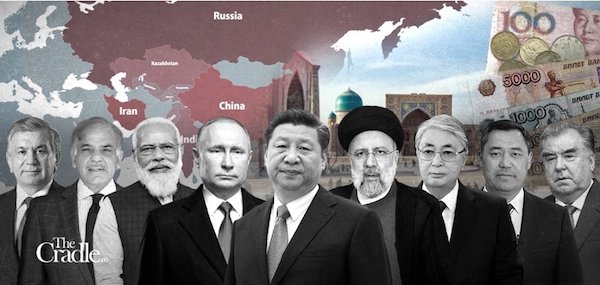
After all, historically, the world from the point of view of the Silk Road landmark has always been “perceived as one and indivisible, not divided. This is the essence of a unique phenomenon – the ‘Samarkand spirit’.” And here Mirziyoyev ties the “Samarkand Spirit” to the original SCO “Shanghai Spirit” established in early 2001, a few months before the events of September 11, when the world was forced into strife and endless war, almost overnight. All these years, the culture of the SCO has been evolving in a distinctive Chinese way. Initially, the Shanghai Five were focused on fighting terrorism – months before the US war of terror (italics mine) metastasized from Afghanistan to Iraq and beyond.
Over the years, the initial “three no’s” – no alliance, no confrontation, no targeting any third party – ended up equipping a fast, hybrid vehicle whose ‘four wheels’ are ‘politics, security, economy, and humanities,’ complete with a Global Development Initiative, all of which contrast sharply with the priorities of a hegemonic, confrontational west. Arguably the biggest takeaway of this week’s Samarkand summit is that Chinese President Xi Jinping presented China and Russia, together, as “responsible global powers” bent on securing the emergence of multipolarity, and refusing the arbitrary “order” imposed by the United States and its unipolar worldview.
Russian Foreign Minister Sergey Lavrov pronounced Xi’s bilateral conversation with President Vladimir Putin as “excellent.” Xi Jinping, previous to their meeting, and addressing Putin directly, had already stressed the common Russia-China objectives: “In the face of the colossal changes of our time on a global scale, unprecedented in history, we are ready with our Russian colleagues to set an example of a responsible world power and play a leading role in order to put such a rapidly changing world on the trajectory of sustainable and positive development.”
Putin: "We jointly advocate the formation of a just, democratic and multipolar world order based on int law,… attempts to create a unipolar world have recently taken an absolutely ugly shape and are totally unacceptable to the overwhelming number of states on the planet." pic.twitter.com/7GHweqCJp3
— Hassan Mafi (@thatdayin1992) September 16, 2022

Time to kick him out and make NATO a defensive body.
• NATO Chief Calls For Arms Production Boost (RT)
Most NATO member states have significantly depleted their own weapons stockpiles by supplying arms to Ukraine, the military bloc’s secretary general has acknowledged. Jens Stoltenberg urged the defense industry to help replenish the thinned-out armories. In an interview with CNN on Thursday, the official lauded the “unprecedented unity in the support to Ukraine” on the part of member states. However, this kind of defense aid for Kiev has until now been “taken from our existing stocks, so they are now running low,” Stoltenberg warned. He added that one of the alliance’s priorities was to “replenish those stocks.” “Therefore, one of the main focuses in NATO is to work with the defense industry to ramp up production,” the organization’s chief explained.
Stoltenberg said that additional ammunition and weapons would help maintain the current level of support to Ukraine while ensuring that states still have “deterrence and defense” tools at their disposal. According to the official, the issue will be high on the agenda of the alliance’s defense ministers meeting in October. Most NATO member states have been providing Kiev with weapons and ammunition since Russia launched its offensive in late February. Among the most generous donors are the US, the UK and Poland. Earlier this month, Germany’s defense minister, Christine Lambrecht, claimed that Berlin has already “handed over an unbelievable amount from the reserves of the Bundeswehr” to Ukraine.
She added though that they have now “reached the limit” in terms of what they can provide. Top Ukrainian officials, including the country’s acting ambassador in Berlin, Andrey Melnik, have repeatedly criticized the German government for its perceived inaction. Kiev insists that Berlin should supply yet more heavy weaponry, including modern battle tanks.

What if the west had people like Putin and Lavrov?
• Ukraine Conflict, Energy Crisis And Colonial West: Putin Press Conference (RT)
Russian President Vladimir Putin spoke to the media on Friday following the Shanghai Cooperation Organization (SCO) summit in Samarkand, Uzbekistan. Earlier, he met with the leaders of China, India, Pakistan, Iran, Turkey, Uzbekistan, Azerbaijan, Kyrgyzstan, Turkmenistan and Mongolia. In his first press conference since July, the president was asked about the conflict with the West, the ongoing military operation in Ukraine, and the energy crisis in the European Union, among other things. Here are some of the key moments from Putin’s press conference.
The West always strived to destroy Russia Destroying Russia and “disintegrating” it into a number of petty states has always been a top priority for the collective West, the Russian president said. Ukraine, in its modern state, has been selected to become an “anti-Russian enclave” and the main tool to achieve such goals, Putin believes. “The fact that they’ve always strived for the disintegration of our country is certain. It is only regrettable that at some point they decided to use Ukraine to achieve such goals,” Putin said. “In order to prevent such developments, we have launched the special military operation.”
Attitude towards Ukraine may change So far, Moscow has demonstrated a very reserved reaction to such actions by the Ukrainian authorities as attempts to target vital infrastructure on Russian soil or stage “terror attacks,” Putin said. “The special military operation is not a warning of some sort, but a special military operation. We’re witnessing attempts to stage terror attacks, attempts to damage our civilian infrastructure. We respond to this with restraint, but only for the time being,” Putin stated, warning that the approach may change in the future. “Quite recently, the Russian armed forces delivered a couple of sensitive strikes, let’s say they were a warning. If the situation continues to develop in such fashion, the response will be more serious,” he added.
No change in Ukraine conflict goals There will be no changes in the goals Russia is striving to achieve with its special military operation in Ukraine, Putin said. “There are no adjustments to the plan. The General Staff makes operational decisions in the course of the campaign as to what is considered a key objective,” the president stated. “The main goal is the liberation of the entire territory of Donbass. This work continues, despite the attempted counterattacks by the Ukrainian army,” Putin said, adding that it was too early to draw any conclusions from the ongoing counteroffensive by Kiev’s forces, and one should wait to see “how it ends.”
Prospects of peace talks with Ukraine are uncertain Russia was ready to agree to security guarantees for Ukraine proposal during Istanbul talks back in March, Russian president revealed. However, the negotiations were scuppered by Kiev. “The troops were withdrawn from Kiev in order to create conditions for the reaching of this deal. Instead of inking it, the Kiev authorities immediately abandoned all agreements. They announced that they would not seek any deals with Russia, but would seek victory on the battlefield. Well, let them,” Putin said. The prospects of further negotiations or personal talks between him and his Ukrainian counterpart Vladimir Zelensky remain uncertain, Putin admitted. “First of all, they should agree [to hold the talks]. But they refuse. Zelensky declared that… he was not ready and not willing to talk with Russia. Well, if he’s not ready – there’s no need [for that],” Putin said.
Putin dismantle
Putin: The West has for decades sought to dismantle Russia and is now trying to use Ukraine as a tool for achieving this goal. pic.twitter.com/b4o9mznWiX
— Putin Direct (@PutinDirect) September 16, 2022

Instead of Putin and Lavrov, we have Truss and Von der Leyen. Whose only purpose seems to be to make Thatcher look good.
• Women in Cabinets and Boardrooms (Vogel)
Do you remember Margaret Thatcher? And Indira Gandhi? Have you ever heard of Golda Meir? All three were “Iron Ladies” who as leaders of their countries and staunch defenders of national interests, truly made a difference. One may or may not agree with their political philosophies and opinions, but there is no denying these women were truly great politicians, outshining even most of their male contemporaries. Today there are seventeen countries where women lead governments. These include France, Britain, Sweden, Denmark, Finland, Estonia, Lithuania, Serbia, Iceland, New Zealand, Bangla Desh and Nepal. The president of the European Commission, Mrs. Ursula von der Leyen, also belongs in this list. In addition, there are fifteen countries where a woman is president.
Of today’s female politicians, perhaps only Cristina Fernandez of Argentina is made of the same stuff as her illustrious predecessors Thatcher, Meir and Mrs. Gandhi. Her actual stature might have been comparable if her country carried more weight in the world political arena. An influence comparable to that of Germany, until its imposition of suicidal economic policies earlier this year. Angela Merkel, the woman who presided over Germany’s fate for over sixteen years, had already done her best to destroy the social fabric of her country by opening the gates to millions of young single male foreigners who nurtured not an ounce of respect or sympathy for the nation that welcomed them with open arms.
In other words, although “das Merkel” (as her many detractors liked to call her) might, on account of her long reign and her grip on German politics be considered a peer to Thatcher, Gandhi and Meir, she has gloriously forsaken her duties. Even if she is not Germany’s actual butcher, Merkel has prepared her country for slaughter. The master butcher currently presiding over the killing of Germany is the Social Democrat Olaf Scholz, a man. But rest assured, half of his cabinet are women. Some of the most pernicious, moronic and incompetent of these women have been put in charge of key ministries. Annalena Baerbock is Minister of Foreign Affairs and as such has been making public utterances that in terms of ignorance and sheer stupidity rival those of her British counterpart Liz Truss, who just a few days ago was anointed Prime Minister.
Ursula game show
Something very wrong about a German politician acting so happy about #NATO's latest proxy war. Ursula @vonderleyen tallies with glee western Europe's financial contribution to the war on #Russia in Ukraine, while #Canada's @JustinTrudeau applauds in the background. pic.twitter.com/oDUcIMGRYY
— tim anderson (@timand2037) September 16, 2022


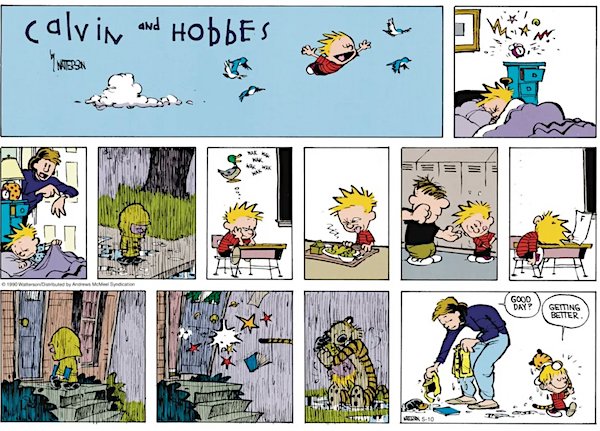

Assange monarchy
Julian Assange on free speech and monarchy pic.twitter.com/wXuj9UfcRl
— WikiLeaks (@wikileaks) September 16, 2022





Red-tailed hawk
https://twitter.com/i/status/1570809747041026049

Support the Automatic Earth in virustime with Paypal, Bitcoin and Patreon.



